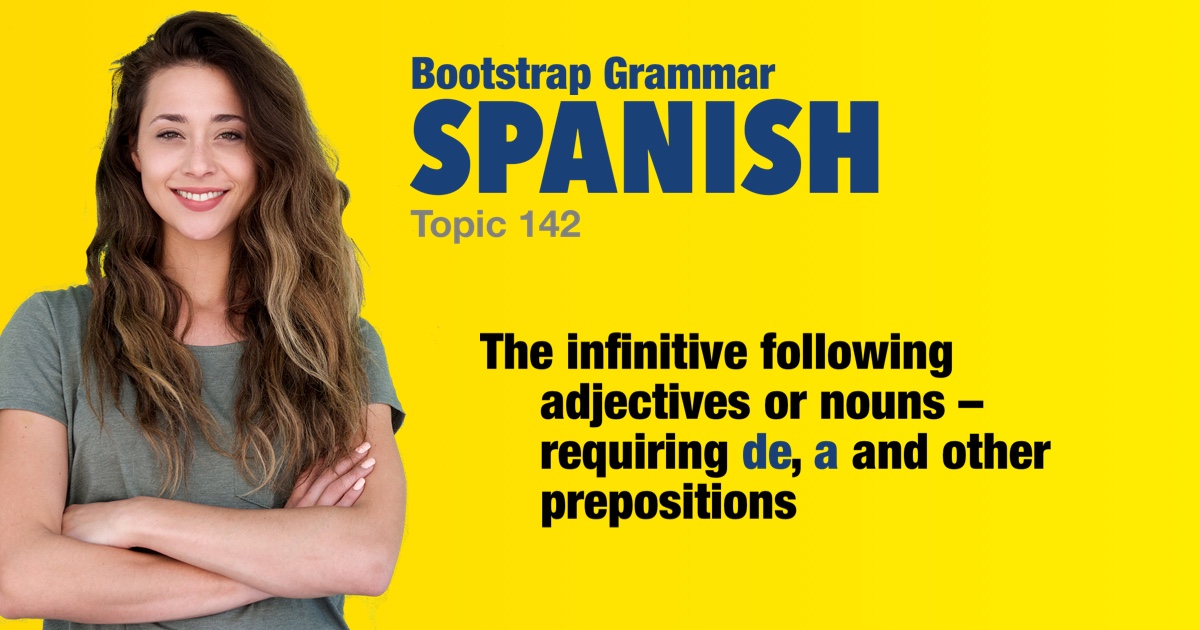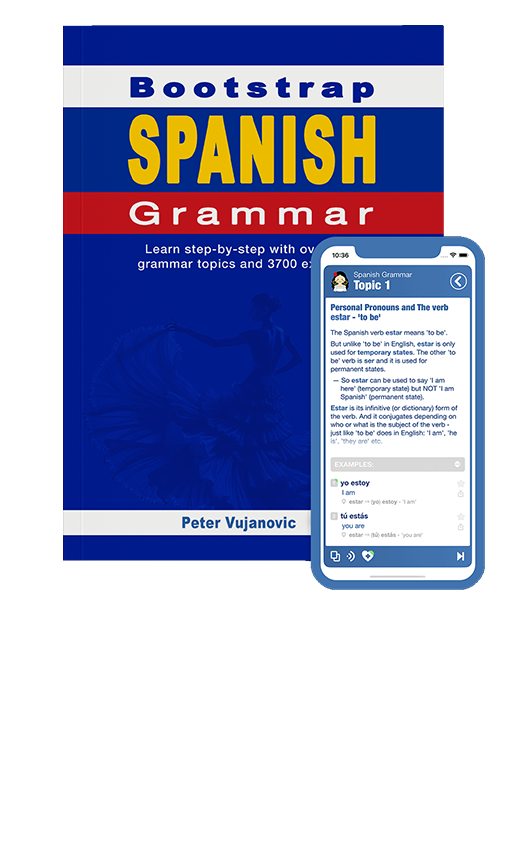Spanish grammar - The infinitive following adjectives or nouns – requiring de, a and other prepositions |
|||
|
|||
In Spanish, certain prepositions can be used to link adjectives or nouns to an infinitive verb. • de is often used to express obligation, necessity, or a relationship between the nounΔadjective and the infinitive. Is is also used after a noun indicating time. • a is frequently used to express the direction or intention of an action, often equivalent to 'to' in English. • para is used to indicate purpose or intention. It is equivalent to 'in order to' or 'for' in English. • en is used to indicate the place, time, context or state in which an action occurs. It is also used with superlative adjectives. Note that comparisons do not require a proposition before the following infinitive verb. |
| Examples: | |
|
Es fácil de entender.
It is easy to understand. |
|
|
No tengo tiempo de esperarte.
(I) don't have time to wait for you. |
|
|
¿Es capaz de hacerlo?
Is (he) able to do it?
|
|
|
Estoy feliz de verte de nuevo.
(I) am glad to see you again.
|
|
|
Estoy encantada de conocerle.
(I, female) am delighted to make your acquaintance.
|
|
|
Es mejor tomar el autobús.
It's better to take the bus.
|
|
|
Marguerite tiene miedo de dormirse.
Marguerite is afraid to fall asleep.
|
|
|
Ella también tiene miedo de no despertarse.
She is also afraid of not waking up. |
|
|
Es raro no pedir ayuda.
It's weird not asking for help.
|
|
|
Ella no tiene tiempo de subir esta montaña.
She doesn't have time to climb this mountain.
|
|
|
Este es el último tren en salir hoy.
This is the last train to leave today.
|
|
|
Él fue el primer chico en besarme.
He was the first boy to kiss me.
|
|
|
Dame un libro para leer.
Give (me) a book to read.
|
|
|
Este es el mejor plato para pedir en este bistró.
This is the best dish to order in this bistro.
|
|
|
El vestido está limpio y listo para usar.
The dress is clean and ready to wear.
|
|
|
Estoy cansado de estudiar todo el día.
I am tired of studying all day.
|
|
|
Tienes la obligación de terminar el trabajo a tiempo.
You have the obligation to finish the work on time.
|
|
|
Ella es capaz de resolver cualquier problema.
She is capable of solving any problem.
|
|
|
Estoy dispuesto a ayudarte en cualquier momento.
I am willing to help you at any time.
|
|
|
Tenemos que estar listos para salir en cualquier momento.
We have to be ready to leave at any time.
|
|
|
Ella tiene una razón para continuar con el proyecto.
She has a reason to continue with the project.
|
|
|
Estoy interesado en aprender más sobre el tema.
I am interested in learning more about the subject.
|
|
|
Este es el mejor lugar para vivir.
This is the best place to live.
|
|
|
El equipo está listo para competir en el torneo.
The team is ready to compete in the tournament.
|
|
 |
|



 comparative adjective, no preposition
comparative adjective, no preposition